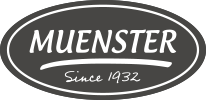Of all the systems in a mammal’s body, the intestines, and more specifically the colon, require special dietary attention. You may feed your dog a strict diet of premium, all natural and organic dog food, but if they can’t absorb the nutrients therein, you’re all in trouble.
Short chain fatty acids (SCFAs), sometimes referred to as volatile fatty acids, are an essential part of nutrient absorption. Evidence suggests they help combat a host of ailments from IBS and cancer to diabetes and heart disease. This SCFA field guide will cover the basic information needed to ensure your pup experiences peak colon performance.
What are Short Chain Fatty Acids?
Short chain fatty acids like Acetic acid, Propionic acid and Butyric acid are distinct because of their individual number of carbon atoms. These essential compounds are created inside your large intestine thanks to special bacteria designed to break down carbs and fiber. Though other fats in the body and some food sources can also synthesize them, it’s a process that happens organically during digestion under the right conditions.
SCFAs and Overall Health
While all the fatty acids have a role in colon health, Butyrate is worth some extra attention. It is responsible for powering the cells in your colon. This SCFA also promotes increased muscle activity, blood flow and water absorption inside your dog’s colon. As the main source of cell energy or colon ‘food,’ Butyrate acid regulates the acidity in the mucus lining. This ensures appropriate mineral absorption levels and is also thought to ward off potentially dangerous growths like polyps and tumors.
There are numerous health benefits of SCFAs and also extend far beyond the colon. Throughout the body, short chain fatty acids have been shown to help with:
- Crohn’s Disease and IBS– bowel inflammation responds well to increased acetate and butyrate levels.
- Colon Cancer– some research suggests high fiber diets and SCFAs can inhibit cancer cells and discourage polyps or tumors from growing into malignant masses.
- Weight loss and diabetes– decreased fat storage and enzyme activation in the liver have the potential to help animals regulate their blood sugar, insulin levels and weight.
- Heart disease and high cholesterol– since SCFAs are produced upon the breakdown of certain soluble dietary fibers, the assumption is the more you intake, the more likely they are to help you increase your heart health and decrease your cholesterol levels.
Foods and Supplements
Though some SCFAs supplements do exist, it’s always better to let the body produce them naturally through fiber breakdown and bacteria output. Still, there are some food sources that have been shown to safely increase fatty acid levels.
- Starches and whole grains like brown rice, beans and legumes like lentils, grain sorghum, sweet potatoes and green bananas.
- Pectin found in orange fruits and veggies, apples and blackberries.
- Fructooligosaccharides (FOS) from onions and leeks or artichokes and asparagus
Dairy and butter are good sources of Butyrate; however, many dogs are lactose intolerant so these products aren’t recommended.
It’s important to speak with your vet before substantially changing your pet’s diet or adding short chain fatty acid supplements to their daily regimen. As always, feeding your pet a high fiber diet of high quality dog food rich with a variety of vitamins and minerals is the best way to improve their SCFA levels and overall colon health.



